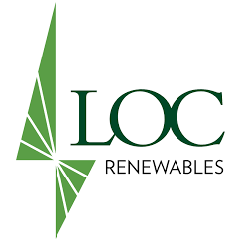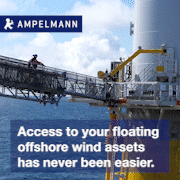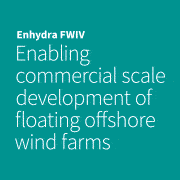LOC Renewables supplies MWS work to Floatgen , France’s first offshore wind project – and its first full-scale floating turbine.
The Paris office of LOC Renewables, a part of LOC Group, the leading international marine and engineering consulting firm, has successfully overseen the launch of France’s first offshore wind turbine. LOC Renewables supplied marine warranty surveying services (MWS) across the project, which enabled an efficient and successful delivery of the 2MW Floatgen. Strikingly, the project is both France’s first offshore turbine and its first launch of full-scale floating wind turbine.
France is well-suited to floating wind, due to the strong, stable winds presented by regions with deeper seas off its coast, both Atlantic and Mediterranean. Moreover, the ability to tow to site floating wind turbines further out to sea means that there is less visual impact than with fixed offshore wind. This is a key issue in the ongoing French offshore debate, which recently saw public opinion and expensive subsidies delay development of several fixed offshore projects by four to six years.
Worldwide, several commercial-scale projects are under development but only a few prototype projects are currently producing power with costs as high as €180/MWh.
The Floatgen Demonstrator project, led by Ideol and involving 6 other European partners (Centrale Nantes, Bouygues Travaux Publics, University of Stuttgart, RSK, Zabala, Fraunhofer), is designed to show the technical and economic feasibility of the multimegawatt integrated floating wind turbine system, opening up a route to future developments with decreased, competitive electricity generation costs – which may soon match those of bottom-fixed offshore wind.
The unique Ideol design involves a concrete floater, moored by six nylon mooring lines, which led to technical challenges. For example, the mooring lines had to be stretched before connection, requiring the use of specialised marine techniques and equipment. In order to ensure that such challenges were appropriately met, LOC was brought on to guide the choice of equipment and procedures.




























